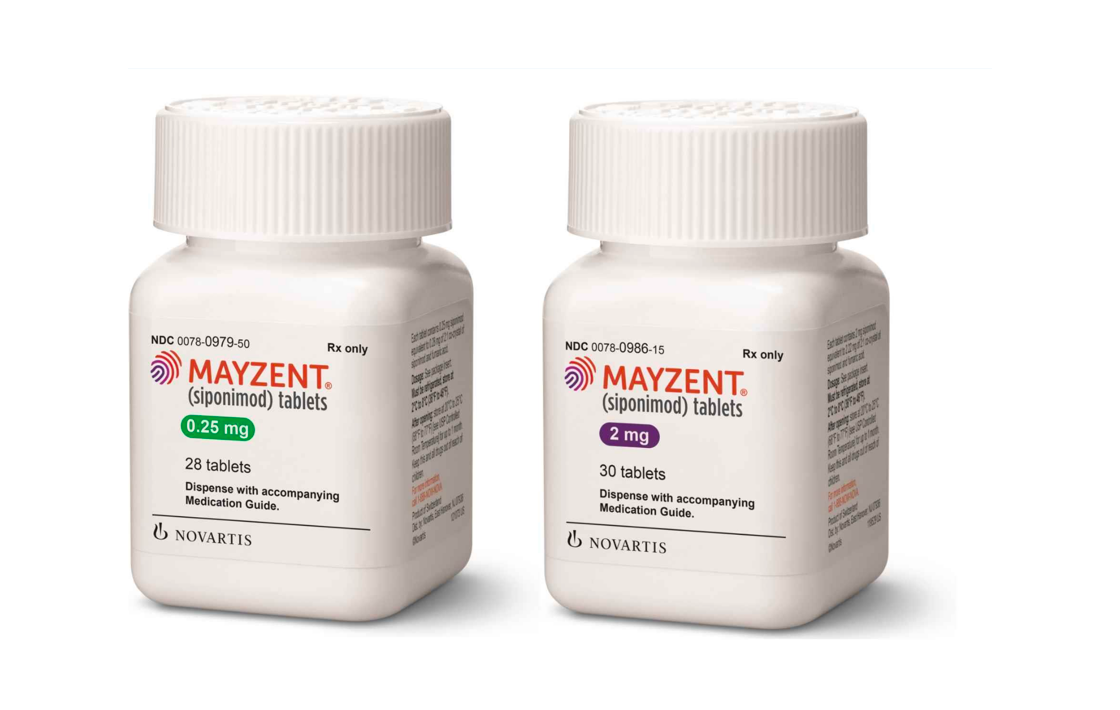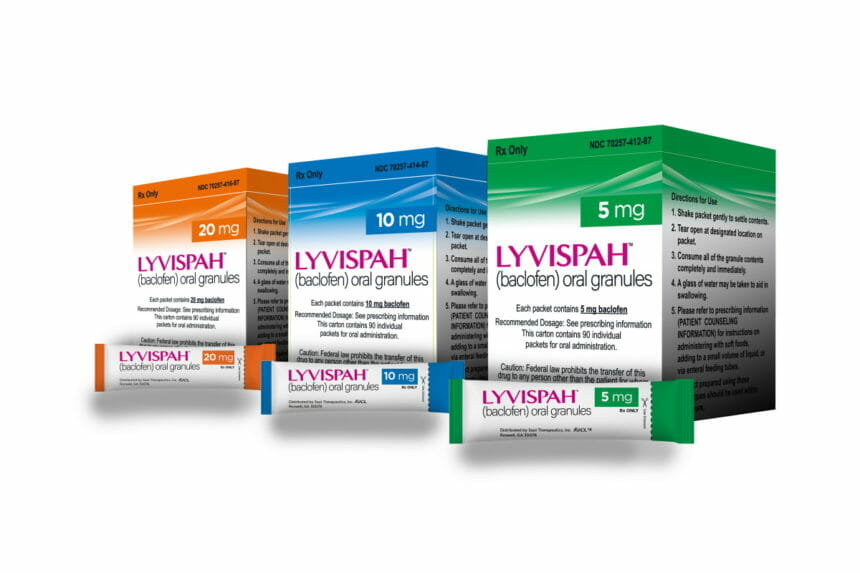Mayzent (Siponimod) vs Lyvispah (baclofen)
Mayzent (Siponimod) vs Lyvispah (baclofen)
Mayzent (Siponimod) is a sphingosine 1-phosphate receptor modulator approved for the treatment of relapsing forms of multiple sclerosis (MS), including clinically isolated syndrome, relapsing-remitting disease, and active secondary progressive disease, in adults. It works by trapping immune cells in lymph nodes, preventing them from reaching the central nervous system and causing nerve damage. In contrast, Lioresal/Lyvispah (baclofen) is a muscle relaxer and an antispastic agent used to treat muscle symptoms caused by multiple sclerosis, including spasm, pain, and stiffness, but it does not alter the course of the disease. When deciding between the two, a patient with MS should consider that Mayzent addresses the underlying disease processes of MS, potentially slowing progression, while baclofen is symptomatic treatment aimed at relieving muscle-related symptoms. The choice of medication would depend on the individual's specific symptoms and disease course, and it should be made in consultation with a healthcare professional.
Difference between Mayzent and Lyvispah
| Metric | Mayzent (Siponimod) | Lyvispah (baclofen) |
|---|---|---|
| Generic name | Siponimod | Baclofen |
| Indications | Relapsing forms of multiple sclerosis (MS), including clinically isolated syndrome, relapsing-remitting disease, and active secondary progressive disease | Spasticity from multiple sclerosis, spinal cord injuries, or other spinal cord diseases |
| Mechanism of action | Sphingosine 1-phosphate receptor modulator | GABA-B receptor agonist |
| Brand names | Mayzent | Lyvispah, Lioresal, Gablofen |
| Administrative route | Oral | Oral, Intrathecal |
| Side effects | Headache, hypertension, liver function test abnormalities, bradycardia | Drowsiness, dizziness, weakness, fatigue, headache, insomnia, nausea, increased urination |
| Contraindications | CYP2C9*3/*3 genotype, recent myocardial infarction, stroke, heart failure, certain immunosuppressive therapies | Hypersensitivity to baclofen, patients with epilepsy, history of stroke, or renal impairment |
| Drug class | Sphingosine 1-phosphate receptor modulator | Antispastic agent |
| Manufacturer | Novartis | Various, including Novartis for the brand Lioresal |
Efficacy
Mayzent (Siponimod) and Its Efficacy in Multiple Sclerosis
Mayzent (Siponimod) is an oral medication approved by the U.S. Food and Drug Administration (FDA) for the treatment of multiple sclerosis (MS), specifically for relapsing forms of the disease, which include clinically isolated syndrome, relapsing-remitting disease, and active secondary progressive disease. The efficacy of Mayzent in treating MS is attributed to its mechanism of action as a sphingosine 1-phosphate receptor modulator, which is thought to work by trapping immune cells in lymph nodes, preventing them from reaching the central nervous system and causing damage. Clinical trials have shown that Mayzent can reduce the rate of relapses and slow the progression of disability in individuals with relapsing forms of MS.
One pivotal phase III trial, the EXPAND study, demonstrated that Siponimod significantly reduced the risk of three-month confirmed disability progression compared to placebo in patients with secondary progressive multiple sclerosis (SPMS). Furthermore, Siponimod also had a positive impact on annualized relapse rates and MRI findings, such as reducing the number of new or enlarging lesions, which are important markers of MS disease activity.
Lyvispah (Baclofen) and Its Efficacy in Multiple Sclerosis
Lyvispah (baclofen) is a medication that is commonly used off-label for the management of spasticity in patients with multiple sclerosis. Although not specifically approved for MS, baclofen's efficacy in this condition has been recognized through its widespread use and supportive clinical evidence. Baclofen acts as a muscle relaxant by activating the GABA-B receptors, which leads to decreased excitability of nerve cells and thus reduces muscle spasticity. For individuals with MS, this can translate to improvements in muscle stiffness, spasms, and pain, which are common symptoms associated with the disease.
Clinical studies and patient reports have indicated that baclofen can significantly improve the quality of life for patients with MS by enhancing mobility and reducing discomfort caused by spasticity. However, the response to baclofen can be variable among patients, and it requires careful dose titration to balance efficacy with potential side effects. While baclofen is widely used for spasticity in MS, its use should be individualized, and patients should be monitored closely by healthcare professionals to optimize treatment outcomes.
Regulatory Agency Approvals
Mayzent
-
European Medical Agency (EMA), European Union

-
Food and Drug Administration (FDA), USA

-
Therapeutic Goods Administration (TGA), Australia

Lyvispah
-
Food and Drug Administration (FDA), USA

Access Mayzent or Lyvispah today
If Mayzent or Lyvispah are not approved or available in your country (e.g. due to supply issues), you can access them via Everyone.org.
How it works

Make an enquiry
Choose the medicine you want to buy, answer a couple of questions, and upload your prescription to speed things up. We’ll get back to you within 24 hours.


Make an enquiry
Choose the medicine you want to buy, answer a couple of questions, and upload your prescription to speed things up. We’ll get back to you within 24 hours.


Breeze through the paperwork
We'll guide you through the required documents for importing unapproved medicine, ensuring you have all the necessary information.


Get a personalized quote
We’ll prepare a quote for you, including medicine costs and any shipping, administrative, or import fees that may apply.


Receive your medicine
Accept the quote and we’ll handle the rest - sourcing and safely delivering your medicine.

Some text on this page has been automatically generated. Speak to your physician before you start a new treatment or medication.
Let's talk
If you have any questions, call us or send us a message through WhatsApp or email:
Contact us




